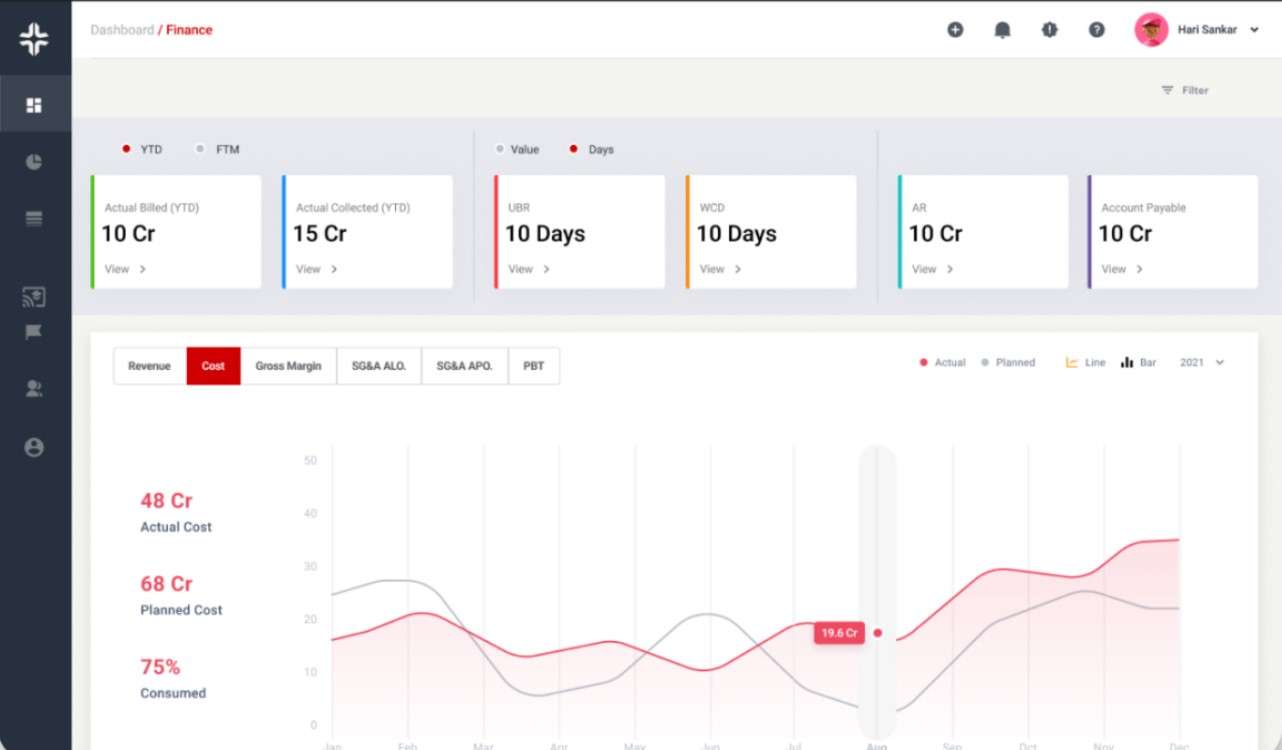Home » PSApedia
Cost-to-Completion
Gain Control Over Project Expenses with Cost-to-Completion Analysis.

What is Cost-to-Completion?
Cost-to-Completion (CTC) is a financial metric used to estimate the remaining costs required to complete a project. It provides businesses with a clear picture of the financial resources needed to bring a project to its conclusion.
In the realm of Professional Service Automation (PSA), understanding CTC is crucial as it aids in effective budgeting, resource allocation, and project management.
Importance of Cost-to-Completion
Understanding CTC is pivotal for several reasons:
1. Budget Management: It helps businesses anticipate the remaining financial resources needed, ensuring that projects don’t exceed their allocated budgets.
2. Resource Allocation: By understanding the costs involved, businesses can allocate resources more efficiently, ensuring that projects are not under-resourced or over-resourced.
3. Project Management: CTC provides project managers with insights into the financial health of a project, enabling them to make informed decisions and adjustments if necessary.
4. Financial Forecasting: It aids in predicting future cash flows and financial needs, which is essential for financial management in any organization.

Importance of Cost-to-Completion
Calculating Cost-to-Completion
Formula:
CTC = (Total Project Budget−Costs Incurred to Date)
Example:
Imagine a project with a total budget of $100,000. If $40,000 has already been spent, the CTC would be:
CTC = $100,000 – $40,000 = $60,000
This means an estimated $60,000 is required to complete the project.
Cost-to-Completion vs. Other Metrics
While CTC is a valuable metric, it’s essential to differentiate it from other related metrics:
1. CTC vs Earned Value (EV): While CTC estimates the remaining costs of a project, EV measures the value of work completed. EV helps in understanding project performance against the budget.
2. CTC vs Actual Cost (AC): AC represents the costs incurred for the project to date. In contrast, CTC forecasts the future costs.
3. CTC vs Budget at Completion (BAC): BAC is the total budget allocated for the project. CTC, on the other hand, is the estimated remaining budget.
Understanding these differences is crucial for effective project financial management.
| Metric | Definition | Use in PSA |
|---|---|---|
| Cost-to-Completion (CTC) | The estimated remaining cost to complete a project or task. | Helps track and manage project budgets and profitability by assessing the financial health of ongoing projects. |
| Billable Utilization | The percentage of billable hours worked compared to total available hours. | Measures the efficiency of billable resource allocation, affecting revenue and profit margins. |
| Resource Allocation | The allocation of team members to specific projects and tasks. | Ensures optimal resource utilization and productivity in line with project demands. |
| Project Margin | The difference between revenue and costs for a specific project. | Indicates the profitability of individual projects and helps identify areas for improvement. |
Utilizing Cost-to-Completion in Professional Service Automation
In the context of PSA, CTC plays a pivotal role:
1. Resource Management: By understanding CTC, businesses can make informed decisions about resource allocation, ensuring that projects are adequately staffed and resourced.
2. Project Monitoring: CTC aids in monitoring project health. If the CTC is consistently higher than anticipated, it might indicate inefficiencies or scope changes that need addressing.
3. Client Communication: Keeping clients informed about CTC can enhance transparency and trust. It ensures that clients are aware of potential budgetary changes or project adjustments.
4. Integration with Other Tools: Modern PSA tools, integrate CTC calculations with other features like Gantt charts and resource management, providing a holistic view of the project.
Ready to Optimize Your Cost-to-Completion?
KEBS, a leading PSA software, offers robust features to help businesses optimize their CTC. With KEBS, businesses can monitor CTC in real-time, ensuring that they are always aware of their financial standing.
KEBS seamlessly integrates with financial management software, allowing for accurate CTC calculations. Generate detailed reports on CTC, helping in financial analytics and decision-making. Tailor your KEBS dashboard to focus on CTC and other crucial metrics, ensuring that you have the information you need at your fingertips.

KEBS Finance Management
Ready to optimize your Cost-to-Completion and enhance your project management capabilities? Contact us today or request a demo to see KEBS in action.



